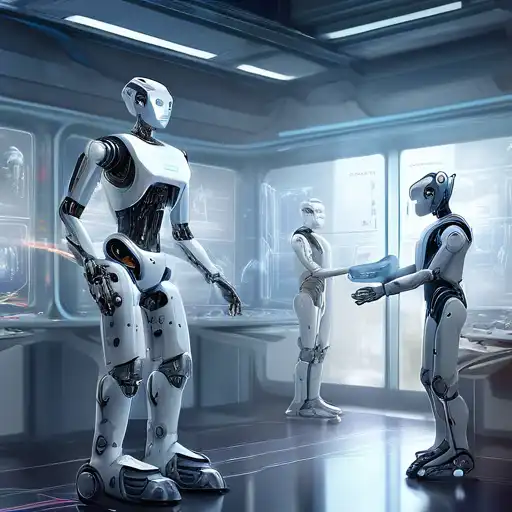The Dawn of a New Age in Robotics
The integration of Artificial Intelligence (AI) into robotics is not just an advancement; it's a revolution that's setting the stage for a future where machines can think, learn, and adapt. This fusion is transforming industries, from manufacturing to healthcare, and redefining what robots are capable of achieving.
Understanding AI Integration in Robotics
At its core, AI integration in robotics involves embedding intelligent algorithms that enable robots to perform tasks autonomously, make decisions based on real-time data, and learn from their experiences. This leap forward is powered by advancements in machine learning, computer vision, and natural language processing.
The Impact Across Industries
The implications of AI-powered robotics are vast. In healthcare, robots can assist in surgeries with precision beyond human capability. In agriculture, they can monitor crop health and optimize yields. The manufacturing sector sees robots that can adapt to new tasks without reprogramming, significantly reducing downtime and increasing efficiency.
Challenges and Considerations
Despite the potential, integrating AI into robotics presents challenges, including ethical concerns, job displacement fears, and the need for robust security measures to prevent misuse. Addressing these issues is crucial for the sustainable development of intelligent robotics.
Looking Ahead: The Future of AI and Robotics
The future of robotics, intertwined with AI, promises even greater advancements. We're moving towards a world where robots can collaborate with humans seamlessly, understand emotions, and make ethical decisions. The possibilities are limitless, and the journey has just begun.
For more insights into the future of technology, explore our technology trends section.
Key Takeaways
- AI integration is transforming robotics, enabling machines to learn, adapt, and make decisions.
- Industries across the board are benefiting from the precision, efficiency, and versatility of AI-powered robots.
- Challenges such as ethical concerns and job displacement must be addressed to ensure the positive impact of this technology.
- The future holds even greater potential for AI and robotics, with advancements that could redefine human-machine interaction.
As we stand on the brink of this technological revolution, it's clear that the integration of AI into robotics will continue to shape our world in ways we are just beginning to imagine. The journey ahead is as exciting as it is uncertain, and staying informed is key to navigating the future of robotics and AI.
